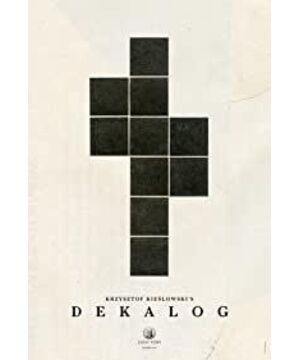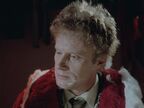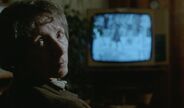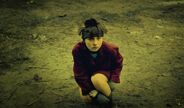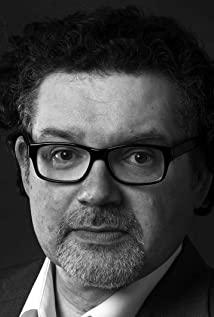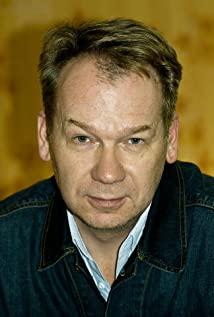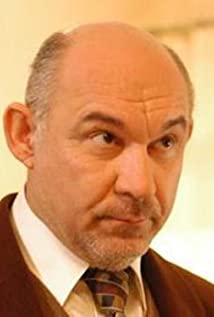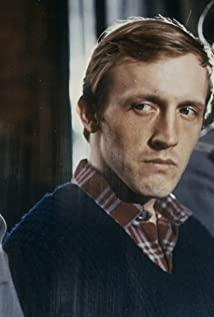Eight-year-old boy Pavel lives with his father Krutzdorf, a mathematician who has a good grasp of computers and believes that everything can be calculated by calculation. On Christmas Eve, Pavel wanted to go ice skating on the lake, his father entered data to calculate the thickness of the ice, and the computer gave the answer "I am ready". Pavel then went happily and never came back...
This is the first of Kieslowski's film series "The Ten Commandments", which uses the tragic story of the accidental death of a child as an entry point, trying to use a kind of pessimism as a starting point. attitude to explore some questions that exist in the life of every ordinary person but cannot be answered by politics, such as religion, belief, morality and death, etc. These questions have a long history and have extensive and profound origins, so from At the beginning, Kieslowski did not intend to draw a formal conclusion, but extended the topic as much as possible, guiding people to interpret different meanings with their own experience.
At the beginning of the original script, the story starts from the street of the community. In front of an old building that is not very eye-catching, two dogs play on the street behind the snow, startling a group of frozen pigeons, one of them flies up, Land on a window and look in, and the story unfolds from the point of view of the dove.
I personally prefer this beginning. The narrative perspective brought by the pigeon's random stop has a certain disorder and uncertainty, which is very consistent with the tone of the whole story. These ethical dilemmas that will be discussed are hidden in the most common in the crowd, so it has the potential to come to every almost similar window, to everyone. Such a setting can make people feel the stories that happened to others in a more intimate way as a reference, but for a more global consideration, Kieslowski finally made the film. This opening has been adjusted to introduce the young man called "Angel" earlier, who will appear repeatedly throughout the series, although he himself hardly participates in the progress of the story, but his role as a mysterious perspective, reminding people to pay attention to thinking that might otherwise be overlooked.
The film begins with him sitting alone by the lake, his face gloomy and thoughtful, and after the scene of Pavel's aunt Irene crying, there's a motion of him wiping away the tears, through the back of the plot. It can be speculated that he may be the only one who witnessed the accident, but he failed to change the tragic ending of the matter. If we regard the "angel"'s gaze as the gaze of God himself, then this tear is a witness to the tragedy. The tears of mercy, as a witness to the Almighty God rather than a change, successfully brought the discussion of the practical significance of faith into the topic.
Whether it is the almighty God of Faith or the new God (computer) worshipped by Pavel's father, they all failed to prevent everything that was about to happen. In the final analysis, it is rooted in a kind of dependence of human beings on other forces.
Pavel's father, Cruzdorf, was an atheist, he believed in science and reason, and believed that everything could be known by calculation, so when he and Pavel were talking about his sister Irene's Christianity, he said : That makes some people better off. There was an obvious sense of superiority in his own scientific beliefs, but he did not understand that his sense of superiority just showed that he was more dependent on the comfort of others than his sister. His admiration and belief in computers is a way of consciously classifying himself and the strong, in order to encourage himself to face difficulties. This borrowed "courage" is gradually used in the process of his search for his son. disintegrated and consumed. There is a deleted scene in the script where Cruzdorf couldn't find Pavel anywhere, and went to church alone, praying for help like the "Old God". Although Christ God did not show mercy to him in the end, he did. The belief in himself that he had always insisted on was obviously swayed at that moment.
The same crisis of belief has also appeared in Pavel. He grew up with his father since he was a child, and he had no doubt inherited the calculation theory of Krutzdorf, but when he faced the frozen When the puppy on the side of the road died, he suddenly realized that calculations were useless. "I knelt down beside it and said to myself, what's the use of that, who would want to know how long it will take for Miss Pig to catch up with Kemmie (a question daddy gave him), that doesn't make any sense." Facing a new predicament , Pavel consciously questioned death and the belief he held. Compared with a bunch of useless numbers, he was more willing to accept another belief, believing that "it (puppy) is much better over there now".
"You shall have no other gods before me", this is God's commandment, Kieslowski explained the evil consequences of believing in "other gods" well in the film, but this Doesn't mean he's a faithful preacher of this commandment, and doesn't actually bring good luck to those who are faithful to God Himself, as pious as Aunt Irene, when she stood on the side of the road watching her nephew Pavel When the last image wept, wondered if she still believed that Christ was with her at that moment?
Kieslowski used this extremely drastic way to verify belief, it was just an excuse for the weak to find for themselves, just like superstitious people like fortune-telling, they definitely do not want to see the beginnings and turns of fate prematurely, Then calmly, they just want to hear some blessings to give themselves the courage to face and go on.
Just like when Cruzdorf asked the computer about the thickness of ice, the computer said: I am ready, the so-called "oracle" is ambiguous in most cases, and it may be life or death when it is ready. It's just that people's fears make them unconsciously have profit-seeking interpretations, and even pretend not to see some objective existence.
Kieslowski calmly pointed out the problem, but did not provide a final solution after all, because faith is the last resort of human weakness, unless one day human beings themselves become almighty gods, become their own gods, otherwise , all kinds of gods will still be created one after another.
View more about Dekalog reviews


